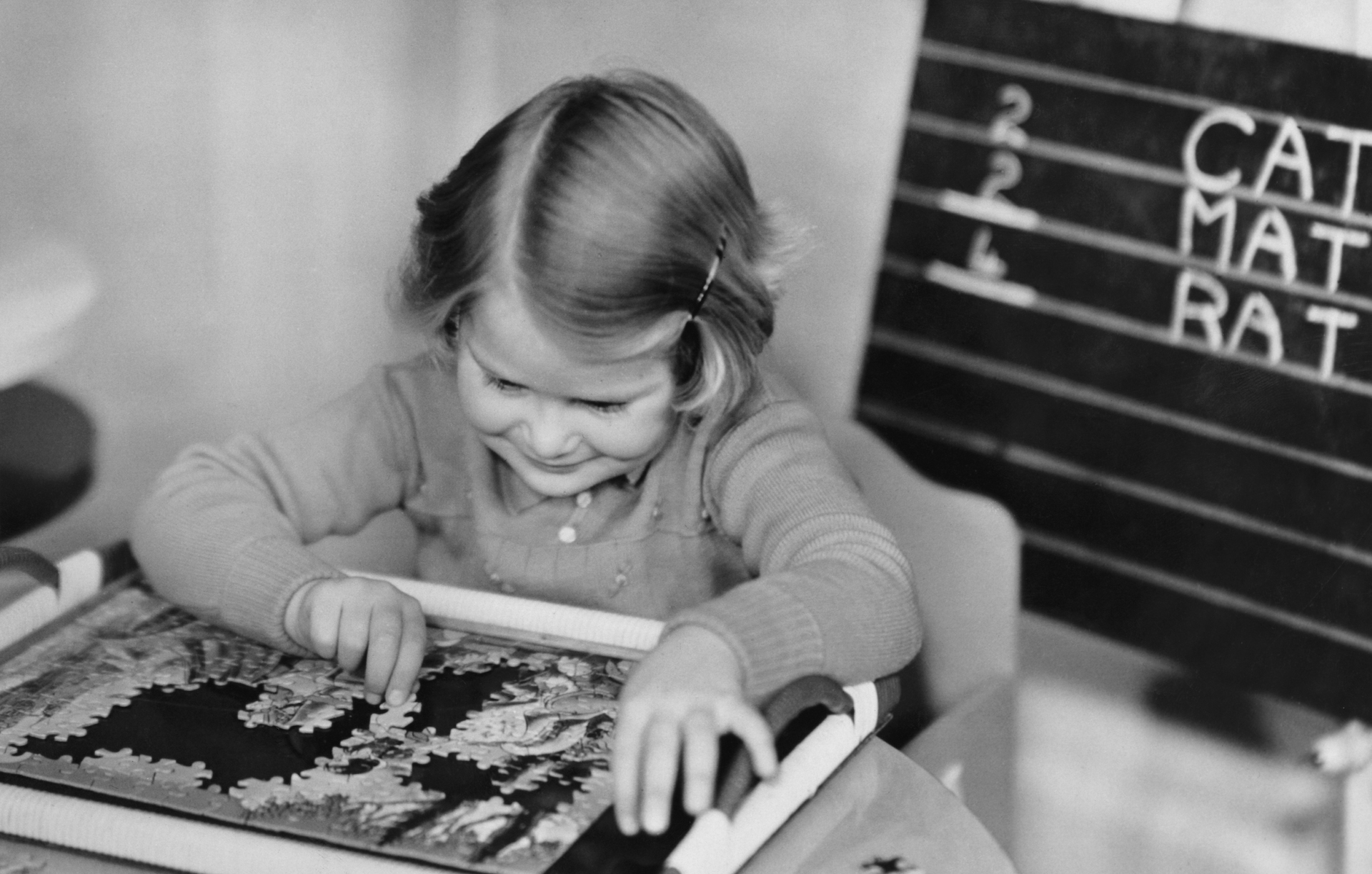A part of being home for the holidays is trying to find something to do in the New Jersey suburbs, especially as someone who despises driving but, to be very clear, has developed much more confidence in driving alone. After a couple of weeks of on-the-town reporting and extensive testing of all available entertainment options, I can officially confirm: The best form of entertainment is solving jigsaw puzzles at the municipal library.
I have visited two local libraries, and this is enough of a sample size to conclude that all suburban libraries must have a communal puzzling–type situation. One (my town's library) had a communal puzzle table with the pieces laid down flat, and another (the neighboring town's library) had a sort of inclined board covered in felt that wooden puzzle pieces stuck to—kinder on the neck but more difficult to slide large chunks of puzzle about. Anyone can work on the puzzle. Once the puzzle is completed, it is swapped out with a new one, which means a theoretically infinite supply of free puzzles. Sounds like a bargain to me!
Solving a jigsaw puzzle—especially if you abide by my older sister's rule against looking at the box while puzzling— requires a wholehearted focus that is difficult to replicate. In the age of short attention spans, being able to focus on something for two hours at a time is a reprieve; for all the valid approaches of slowly exercising the brain to be able to read again, solving a puzzle makes it easy to achieve, albeit in a different form. Puzzling combines the best parts of going on a walk—having some level of non-strenuous physical engagement with your body and senses—with those of locking in—having to use your brain for a very specific purpose—and becomes a shared experience, too, even if you're doing it with your siblings in a library and can't fully converse.
The best part is that your brain eventually becomes a bit smarter than you are, and you notice it over the course of a puzzle. Faced with multiple different sections containing the color red, the brain starts to recognize textures instead: This red belongs to this section of dice, while that red belongs to a cluster of candles. Being barred from looking at the box gifts the eureka moment of connecting two large sections together. Perhaps the most satisfying experience comes from spotting a lonely, drifting puzzle piece and knowing exactly where it goes. Combine everything, and it becomes addicting, a possibility I did not consider until it was Sunday afternoon, and I'd brought my little sister to the library so we could work on the new puzzle laid out after we, along with my older sister, had collectively finished a previous one.
So if you, too, are extremely bored in the suburbs (it does not have to be in New Jersey, but I can't speak for any municipal libraries outside of New Jersey), I recommend going to your local library and getting really hooked on jigsaw puzzles. And if your conclusion from this blog is that one should not live in the suburbs, well ... you will not catch me disputing that claim.






